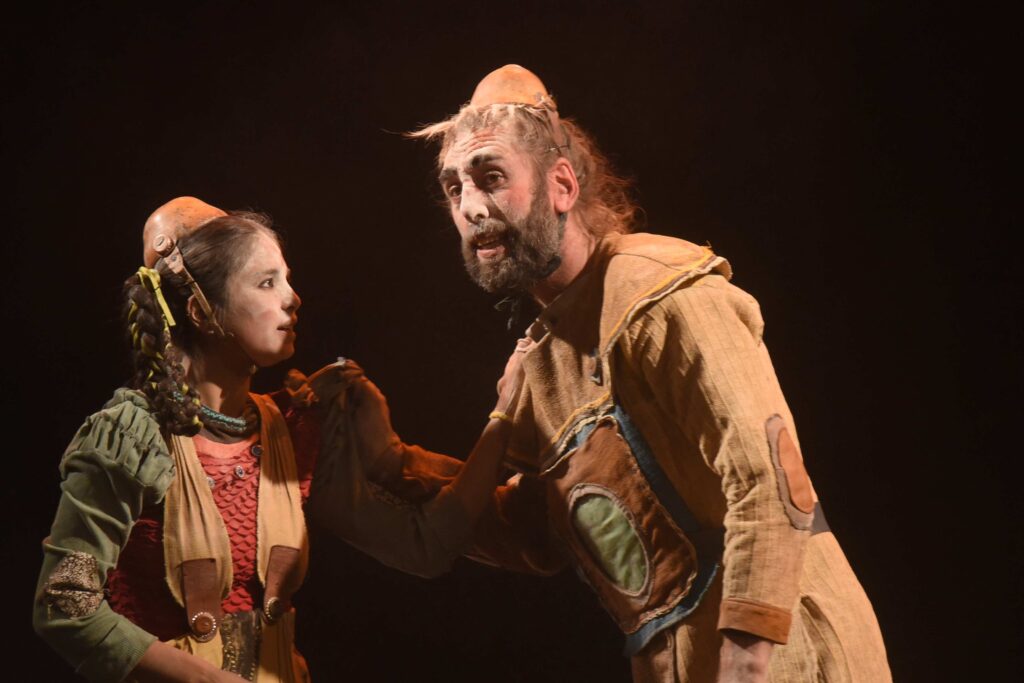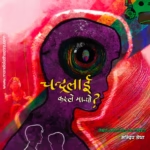Andrés Fagiolino, a theatre artist and researcher, and Betina Dominguez, a former circus artist and now a theatre artist, performed their play ‘Rio’ at NITFest 2023. Set against the background of a water crisis, this nonverbal interactive play initiated water preservation dialogue in Nepal’s theatre community. Fagiolino and Domonguez run an independent theatre group since 2015. In this interview with Suraj Subedi, the artists share their journey and the theatre scene in Uruguay.
What kind of issues are contemporary theatre groups in Uruguay dealing with?
Andrés: In Uruguay, the natives were displaced by immigrants. So there are many people there whose roots are missing. For us in this generation, the main challenge is preserving our culture. Uruguay is a very small country; if you search beyond the border, you can find our natives. So we travel to explore our roots.
How far has the theatre helped you in doing so?
Andrés: A lot. If you do theatre and start researching, you open an invisible door. It has helped us open so many dimensions of receiving things. Our training is more about receiving from the audience. You have seen it in the play, too. We receive from humans, plants, and the environment everywhere we go. In my case, the personal and collective memory also works. We have been through a dictatorship, and a lot of people have been forcibly disappeared. Our life is composed of small instances. We have grown up with the magical realist stories of Gabriel García Márquez, and we find humour in tiny things.
Betina: Theatre has helped us a lot to reach places. We do not travel like tourists; we connect with local people everywhere we go. We perform and we interchange. We stay at local houses where people provide us with only a bed, which is enough. Staying like this makes us enter more into their culture and understand them better. We also organise workshops and that has helped us connect with people. Even if we don’t know the name of the person participating in the workshop, we share deep everyday things. The contact with the people makes us travel more even after seven years of travel. Because we find true, honest interactions, we receive much love and help from local people.
How is the participation of women in group theatres in Latin America, and what kinds of stories are they telling?
Betina: In Latin America, there is a big moment for women doing theatre. We still have a patriarchal society, but things are changing slowly. The women are talking about women and sharing the issues relatable to everybody. I focus on improvisation and bring our stories on stage. Women also have a connection to Mother Earth. Women need to talk, and theatre is one of the crucial spaces to talk. Yesterday, we met a few people here. They were so young but interested in talking about what was happening there. And theatre here is allowing this to happen. It is giving them the necessary space.
What did theatre give you that made you stay with it?
Andrés: The nature of theatre is that it can accommodate any form. When I came from clowning, it was challenging. But it was also love at first sight. Through that, I could embrace the dark sides of myself. Through that, I have befriended things or sides I don’t like. I show that to the others; they can even laugh at me, but there is a lot of lightness in that, not shallowness. That was the turning point of my life. That’s when I said bye-bye to everything.
Betina: I didn’t choose it. But once I came in, I didn’t return. Now, I feel that when I am on the stage, I feel alive. After coming here, I had many questions, too. I had doubts. What if I got lost? But when I stayed, I felt everything made sense in these moments. People say that when I am on stage, I get changed drastically. It is because I feel like a hundred percent of my totality. Something moves inside me and brings me a lot of power and energy. I feel like I can do whatever when I do on stage. Also, another thing is that we can see beyond reality. That way, it is like meditation.
How is the response to your play in Nepal?
Andrés: As our play was very interactive, I think the Nepali audiences reacted well. Many felt that some door was open and just wanted to play. I can say that I love them. I think it’s in Nepali society; if you get permission, you can jump in and be part of it. The play helped both in and outside the play.
Betina: As humans, we love to play; we love this lightness. This approach is why we can deal with big issues such as water scarcity, as we showed in the play. We want to approach the severe stuff lightly. During our travel, we all played with the local people. We initiate interaction. And they are so open to play.
What inspired you to create the play ‘Rio’?
Andrés: We were in Pochamama, a city in Bolivia. They were suffering from a drought for ten months, which struck us. The theatre people there were creating a play about water. At the same time, in the same theatre, people left the tap open to water the plants for hours. We saw a contradiction there. We kept traveling to North Peru. This place was also suffering from drought. We travelled for three more months, and the rains came, finally. But the earth was unprepared to absorb it, and so the floods came. The ten-meter-tall theatre, too, was lost to the flood. Everything was ruined. One actor died. We got that news in Columbia. The situation was similar there, too. We also travelled to a lake in Bolivia, where people were throwing garbage. One of the items thrown was plastic cups, which we took from there. Then, we went to a creative residency in Ecuador. The play was born there.
Betina: This is very complex. Sometimes, when we do this play in schools, teachers focus on morality. They say, “Did you see, kids? That’s what we mean. Save water. Turn off the tap.” Apart from that, the water is getting polluted every day. It may sound political, but the governments talk about saving water but don’t do anything to change the current water situation. They have the power to stop the use of plastic, but they don’t use that. Instead, they chase out the native people who are preserving the water. They treat them as terrorists just because they are conserving the water. We must be aware of this and work collectively as a community to make influential people listen to us.







